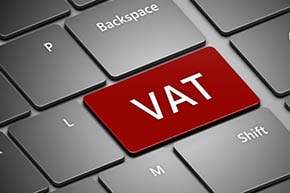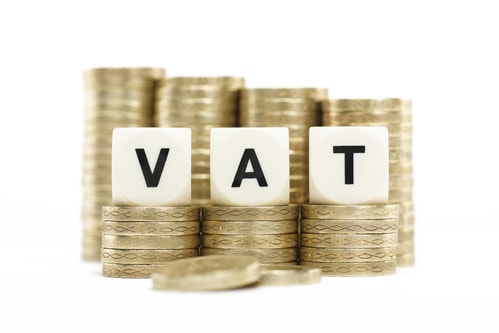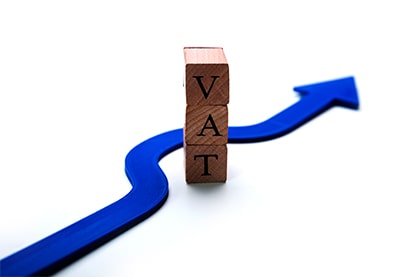UAE VAT Executive Regulations: Key Amendments and Business Implications
 On September 6, 2024, the UAE introduced major amendments to its VAT Executive Regulations (ER), which were later published in the Official Gazette No. 783 on September 16, 2024. These changes, effective from November 15, 2024, are designed to improve compliance, reduce administrative burdens, and align tax policies with evolving industries, including virtual assets. With some provisions having retrospective effect, businesses across sectors need to carefully review these amendments and take prompt action to remain compliant.
On September 6, 2024, the UAE introduced major amendments to its VAT Executive Regulations (ER), which were later published in the Official Gazette No. 783 on September 16, 2024. These changes, effective from November 15, 2024, are designed to improve compliance, reduce administrative burdens, and align tax policies with evolving industries, including virtual assets. With some provisions having retrospective effect, businesses across sectors need to carefully review these amendments and take prompt action to remain compliant.
Exemption from VAT for Fund Management and Virtual Assets
A significant change in the VAT ER is the extension of the VAT exemption for financial services under Article 42 to two new categories: fund management services and virtual assets. Investment fund management services, provided independently by fund managers to licensed funds, are now exempt from VAT. These services include the management of fund operations, investment oversight, and performance improvement. This change brings the UAE in line with practices in jurisdictions like the European Union, where VAT exemptions apply to investment funds under specific conditions. However, it may complicate input VAT recovery for fund managers, as VAT-exempt services generally limit the ability to recover input VAT.
The second exemption applies to virtual assets, including virtual currencies. The transfer and conversion of virtual assets are now VAT-exempt, and this change is effective retroactively from January 1, 2018. Additionally, activities such as the custody and management of virtual assets are exempt. This development provides much-needed clarity to the virtual asset industry in the UAE and aligns the VAT regime with the growing importance of digital assets. However, businesses dealing with virtual currencies will need to reassess their historical VAT filings to ensure compliance with the new rules.
Zero-Rating for the Export of Goods
Article 30 of the VAT ER has been amended to address challenges businesses face in meeting documentation requirements for export transactions. Previously, exporters were required to retain both official and commercial evidence of exports, but in practice, obtaining this documentation such as exit certificates proved difficult. The amendments now provide greater flexibility by allowing businesses to apply the zero rate for exports based on any of the following documents:
- A customs declaration and supporting commercial evidence proving the export
- A bill of lading accompanied by official evidence of export
- A customs declaration confirming the status of customs suspension if goods are placed under a customs suspension regime
These changes aim to reduce compliance burdens and improve the ease of doing business for companies engaged in international trade. With multiple documentation options available, exporters can better align their processes with real-world scenarios and avoid penalties related to VAT compliance.
 Export of Services and Means of Transport
Export of Services and Means of Transport
The amendments to Article 31 narrow the scope of zero-rating for exported services. Under the new rules, services subject to specific place-of-supply rules such as those related to goods installation, real estate, transport, and catering can no longer qualify for the zero rate. This restriction reflects a second significant change to the VAT rules on service exports since the VAT system was introduced in the UAE. Businesses providing these services must carefully review their VAT treatment to avoid non-compliance.
Similarly, the amendments clarify the zero-rating of international transportation services. The domestic leg of an international transport journey will only qualify for the zero rate if it is provided by the same supplier responsible for the international transportation. This clarification eliminates uncertainties for businesses subcontracting domestic transport to third parties, ensuring consistent VAT treatment. Furthermore, Article 35 introduces new conditions for zero-rating services directly connected to a means of transport, such as repairs and maintenance, which must be carried out on board to qualify for zero-rating.
Input VAT Recovery for Health Insurance Expenses
One of the most welcomed changes in the amendments involves input VAT recovery on health insurance expenses. Previously, businesses faced uncertainty about whether they could recover input VAT on insurance costs provided to employees and their dependents. Article 53(1)(c)(3) now allows businesses to recover VAT on health insurance expenses for one spouse and up to three children under the age of 18, even if such coverage is not mandated by local laws. This amendment ensures a uniform VAT treatment across all Emirates and reduces the administrative burden on companies.
Government Entities and Deemed Supply
A new Article 3 (bis) has been added to the VAT ER, excluding certain transactions between government entities from VAT. The exemption applies to the transfer or disposal of government-owned real estate, buildings, or similar projects, as well as the right to use or exploit these assets. The effective date for this change is retroactive to January 1, 2023.
In addition, the deemed supply rules have been updated to introduce an exception for government entities and charities. If the total VAT amount payable on all deemed supplies between government entities or charities does not exceed AED 250,000 in a 12-month period, such transactions will not be treated as deemed supplies. This change reduces the VAT burden on government bodies and non-profit organizations, promoting smoother inter-agency operations.
Additional Amendments and New Definitions
Several other amendments have also been introduced to the VAT ER, including changes to tax invoice requirements and input VAT recovery rules. Summary tax invoices must now be issued within 14 days from the end of the relevant calendar month, and new conditions apply for invoices issued by agents on behalf of principals. The amendments also include rules for calculating input VAT recovery when a tax group changes or when the tax year is shorter than 12 months. An option to apply for a fixed input tax recovery rate has been introduced, providing greater predictability for businesses.
The revised regulations address composite supplies by clarifying the VAT treatment of transactions involving multiple elements, ensuring that businesses apply the correct VAT rate to each component. Furthermore, the definition of "purchase price" within the profit margin scheme has been broadened to encompass all fees and expenses associated with the acquisition of goods. The amendments also grant the Federal Tax Authority (FTA) the authority to cancel VAT registrations under certain circumstances, such as when registration requirements are no longer met.
 Consequences and Future Actions for Businesses
Consequences and Future Actions for Businesses
These amendments have far-reaching implications across various sectors, including financial services, transportation, real estate, and government operations. Businesses must review the updated regulations to identify the transactions and processes affected by the changes. With many provisions taking effect on November 15, 2024, and some rules applied retroactively, prompt action is necessary to ensure compliance.
Companies should conduct an internal review to assess the impact of the changes on their operations and adjust their accounting systems and procedures accordingly. For businesses involved in the export of goods or services, updating documentation processes will be crucial to apply the zero rate effectively. Organizations that deal with virtual assets or financial services should re-evaluate their VAT treatment and, if necessary, correct historical VAT filings to reflect the new rules.
In conclusion, the amendments to the UAE VAT Executive Regulations introduce significant changes aimed at improving compliance and reflecting the evolving business environment. While these changes offer greater clarity and relief in certain areas, such as health insurance expenses and government transactions, they also introduce new challenges, particularly in input VAT recovery and zero-rating rules. Businesses must act proactively to adapt to the new regulations and ensure continued compliance with the UAE’s VAT regime.
 English
English
 عربي
عربي Русский
Русский 官话
官话 português
português
 Türk
Türk 






